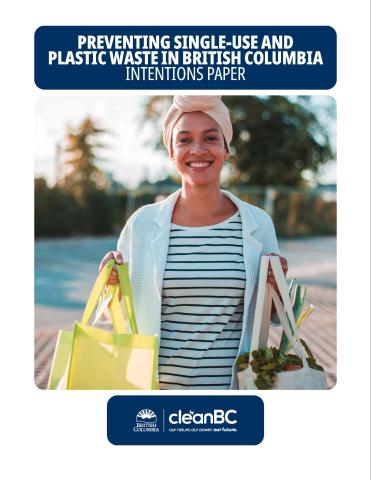The Province has released an intentions paper on single use and plastic waste prevention, and is running an engagement period on the proposed waste prevention regulation. Local governments, along with the public and other stakeholders, are invited to fill out a survey and submit comments before June 21, 2022.
The proposed waste prevention regulation aims to reduce the impacts of single-use and plastic items, and the amount of single-use and plastic waste found in the environment, by:
- phasing out unnecessary single-use and plastic items;
- promoting a shift to durable reusable options;
- ensuring necessary single-use and plastic items are recycled or composted; and
- providing a consistent provincewide approach to regulating single-use and plastic items.
The specific items that are outlined for the regulation include:
- bans on plastic checkout bags in conjunction with fees on single-use paper bags;
- by-request requirement for disposable foodservice accessories (e.g. utensils, drinking straws, condiment sachets, napkins, cup lids) regardless of material type;
- bans on foodservice ware (e.g. plates, bowls, film wrap, meat trays, deli containers) made from problematic plastics (i.e. polystyrene foam, PVC and compostable plastics); and
- bans on plastics with oxo-degradable additives.
The intentions paper also describes how the Province will continue to enable municipal governments to take actions on single-use and plastic waste under the Spheres of Concurrent Jurisdiction Regulation, recognizing that over a dozen municipalities have already enacted bylaws to reduce certain single-use plastics. A webinar for local governments will be held within the consultation period, with webinar information being distributed in early May.
UBCM has engaged the Province on single use and plastic waste prevention through discussions on the provincial plastics action plan and conveyance of member resolutions. In particular, the UBCM membership has endorsed numerous resolutions calling for: the reduction of single use products through a provincial strategy; producer responsibility for end of life management of single products; and local government regulation of plastics.

